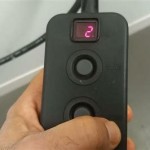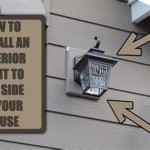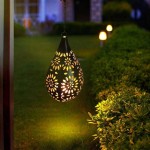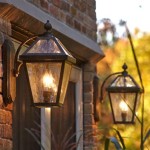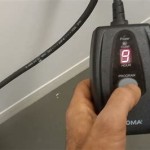```html
Essential Aspects of Outdoor Motion Sensor Settings
Outdoor motion sensors are crucial security devices that detect movement and trigger alarms or lights. Proper settings are vital to optimize their effectiveness and minimize false alarms.
This article will delve into the essential aspects of outdoor motion sensor settings, exploring key parameters such as sensitivity, range, and detection zones. We will provide insights into their significance and how to configure them for optimal performance.
Sensitivity and Calibration
Sensitivity determines how easily the sensor reacts to movement. Higher sensitivity increases detection range but may also lead to false alarms from minor movements like small animals. Calibration is essential to ensure the sensor is set to the appropriate sensitivity level for the specific environment.
Detection Range and Coverage
Detection range refers to the distance within which the sensor can detect motion. It should be adjusted to cover the desired area while avoiding detection of movement outside the monitored zone. Proper positioning and mounting height are crucial for optimal range and coverage.
Detection Zones and Masking
Most motion sensors have adjustable detection zones that allow you to define the areas where motion should be detected. Masking involves excluding certain areas, such as driveways or walking paths, to minimize false alarms caused by intended movement.
Time Delay and Cooldown Period
Time delay determines how long the sensor remains active after detecting motion. It prevents excessive triggering of alarms or lights. Cooldown period refers to the time after which the sensor becomes active again after an alarm or light activation.
Environmental Factors
Temperature, wind, and sunlight can affect motion sensor performance. Ensure the sensor is rated for outdoor use and adjust settings accordingly. Proper mounting and shielding can help minimize environmental interference.
Integration with Other Devices
Outdoor motion sensors can be integrated with other security devices such as alarms, lights, and surveillance cameras. Proper configuration allows for seamless coordination and enhanced security.
Conclusion
Understanding and optimizing the settings of outdoor motion sensors is crucial for their effective operation. By considering factors such as sensitivity, range, detection zones, time delay, environmental factors, and integration, you can enhance the security of your property and minimize false alarms.
```
How To Alter The Settings On Your Pir Floodlight Security Light Sensor

Understanding Motion Lighting

Understanding Motion Lighting

Philips Hue Outdoor Sensor Review Trigger Lights And Homekit Gadgets With This 50 Cnet

120 Led Solar Security Light Black Spv Lights

Motion Sensor Lights Tips To Reset Detector

Eti 240 Degree Led Motion Sensor Light Outdoor White 3 Head Flood Security 1800 To 3600 Lumens Driveway Walkway 514032120 The Home Depot

Tips For Setting Up Your Motion Sensor Floodlight

3 Wire Outdoor Motion Detector With Time And Ambient Light Settings

Lepro Motion Sensor Outdoor Light Led Security Flood Lights With 3 Adjustable Heads 270 Wide Lighting Angle 27w 3200lm Super Bright Ip65 Waterproof For Yard Porch Garage Black Com

